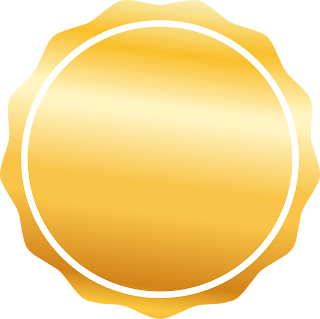In Praise of Amateurs
In Praise of Amateurs
specialized and compartmentalized subject, the domain of experts who know more and more about
less and less. Perhaps surprisingly, however, amateurs – even those without private means – are
still important.
A recent poll carried out at a meeting of the American Association for the Advancement of Science
by astronomer Dr Richard Fienberg found that, in addition to his field of astronomy, amateurs are
actively involved in such fields as acoustics, horticulture, ornithology, meteorology, hydrology and
palaeontology. Far from being crackpots, amateur scientists are often in close touch with
professionals, some of whom rely heavily on their co-operation.
Admittedly, some fields are more open to amateurs than others. Anything that requires expensive
equipment is clearly a no-go area. And some kinds of research can be dangerous; most amateur
chemists, jokes Dr Fienberg, are either locked up or have blown themselves to bits. But amateurs
can make valuable contributions in fields from rocketry to palaeontology and the rise of the Internet
has made it easier than before to collect data and distribute results.
Exactly which field of study has benefited most from the contributions of amateurs is a matter of
some dispute. Dr Fienberg makes a strong case for astronomy. There is, he points out, a long
tradition of collaboration between amateur and professional sky watchers. Numerous comets,
asteroids and even the planet Uranus were discovered by amateurs. Today, in addition to comet
and asteroid spotting, amateurs continue to do valuable work observing the brightness of variable
stars and detecting novae- ‘new’ stars in the Milky Way and supernovae in other galaxies. Amateur
observers are helpful, says Dr Fienberg, because there are so many of them (they far outnumber
professionals) and because they are distributed all over the world. This makes special kinds of
observations possible:’ if several observers around the world accurately record the time when a star
is eclipsed by an asteroid, for example, it is possible to derive useful information about the
asteroid’s shape.
Another field in which amateurs have traditionally played an important role is palaeontology.
Adrian Hunt, a palaeontologist at Mesa Technical College in New Mexico, insists that his is the field
in which amateurs have made the biggest contribution. Despite the development of high-tech
equipment, he says, the best sensors for finding fossils are human eyes – lots of them.
Finding volunteers to look for fossils is not difficult, he says, because of the near universal interest
in anything to do with dinosaurs. As well as helping with this research, volunteers learn about
science, a process he calls ‘recreational education’.
Rick Bonney of the Cornell Laboratory of Ornithology in Ithaca, New York, contends that amateurs
have contributed the most in his field. There are, he notes, thought to be as many as 60 million
birdwatchers in America alone. Given their huge numbers and the wide geographical coverage they
provide, Mr Bonney has enlisted thousands of amateurs in a number of research projects. Over the
past few years their observations have uncovered previously unknown trends and cycles in bird
migrations and revealed declines in the breeding populations of several species of migratory birds,
prompting a habitat conservation programme.
Despite the successes and whatever the field of study, collaboration between amateurs and
professionals is not without its difficulties. Not everyone, for example is happy with the term
‘amateur’. Mr Bonney has coined the term ‘citizen scientist’ because he felt that other words, such
as ‘volunteer’ sounded disparaging. A more serious problem is the question of how professionals
can best acknowledge the contributions made by amateurs. Dr Fienberg says that some amateur
astronomers are happy to provide their observations but grumble about not being reimbursed for
out-of-pocket expenses. Others feel let down when their observations are used in scientific papers,
but they are not listed as co-authors. Dr Hunt says some amateur palaeontologists are
disappointed when told that they cannot take finds home with them.
These are legitimate concerns but none seems insurmountable. Provided amateurs and
professionals agree the terms on which they will work together beforehand, there is no reason why
co-operation between the two groups should not flourish. Last year Dr S. Carlson, founder of the
Society for Amateur Scientists won an award worth $290,000 for his work in promoting such co-
operation. He says that one of the main benefits of the prize is the endorsement it has given to the
contributions of amateur scientists, which has done much to silence critics among those
professionals who believe science should remain their exclusive preserve.
At the moment, says Dr Carlson, the society is involved in several schemes including an innovative
rocket-design project and the setting up of a network of observers who will search for evidence of a
link between low- frequency radiation and earthquakes. The amateurs, he says, provide
enthusiasm and talent, while the professionals provide guidance ‘so that anything they do discover
will be taken seriously’. Having laid the foundations of science, amateurs will have much to
contribute to its ever – expanding edifice.
Taken From Ilets Reading Test.


Comments
Post a Comment